Associate Professor of the Department of Ecology and Environmental Protection Technologies, Doctor of Science Yelizaveta Chernysh took part in the Lisbon meetings of the international project "Phosphogypsum Processing to Critical Raw Materials" (PG2CRM), which aims to study the potential of integrated use of phosphogypsum while solving environmental problems. The events took place on March 18-20, 2024 at the NOVA School of Science and Technology (NOVA University in Lisbon, Portugal).
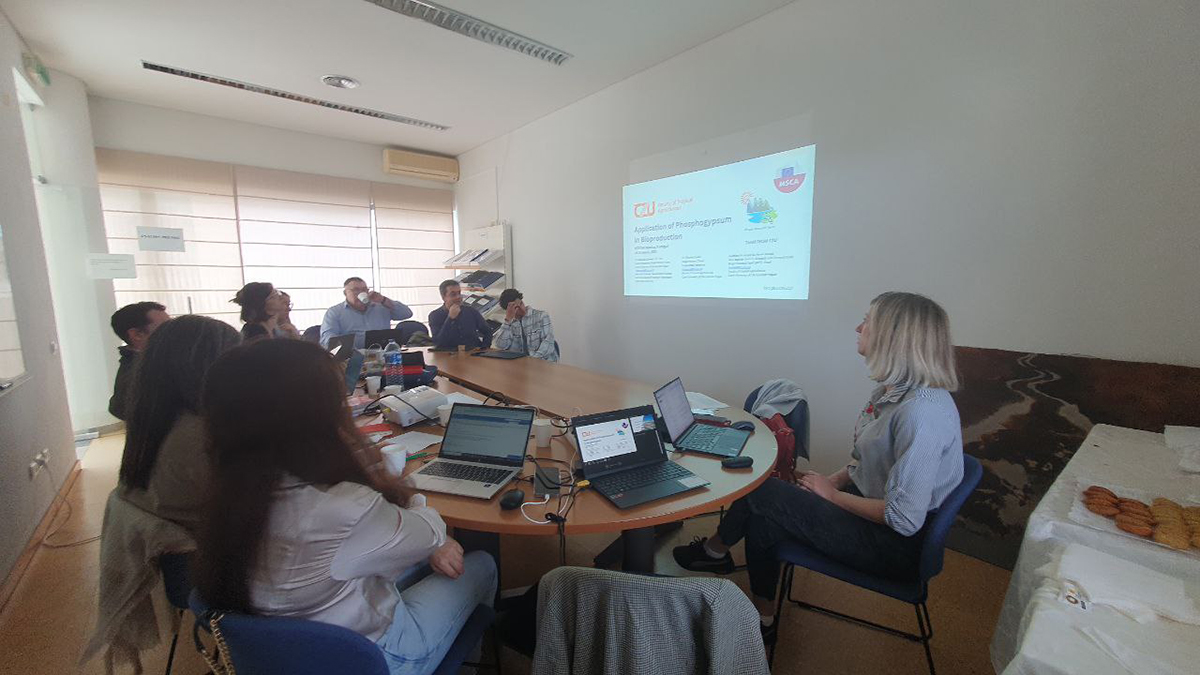
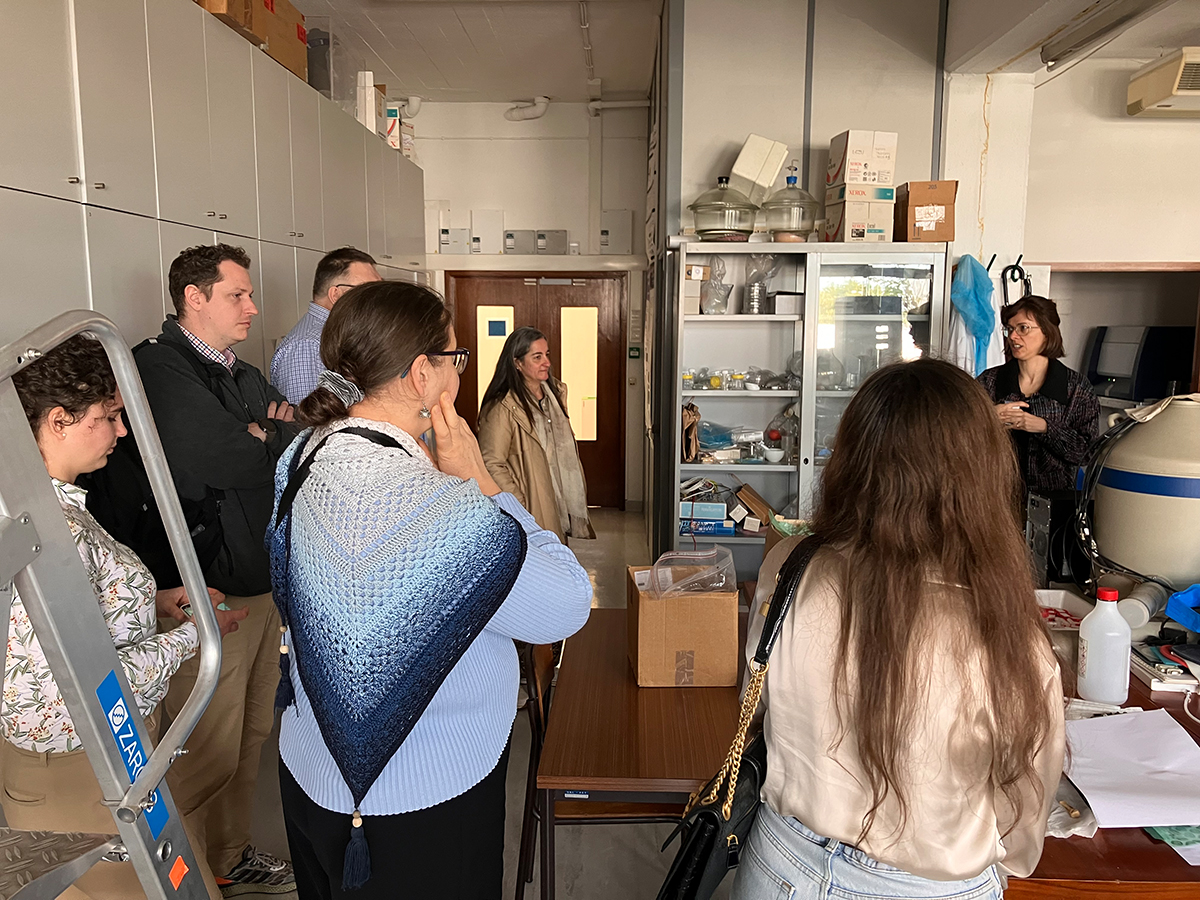
During the meetings, Assoc. Prof. Dr. Yelizaveta Chernysh presented the results, which relates to the topic "Phosphogypsum as a mineral resource for bioprocesses" under Marie Skłodowska-Curie Postdoctoral Fellowship (MSCA-PF). It should be noted that the financial support was in the framework of the MSCA4Ukraine project, which is funded by the European Union. The possibilities of cooperation and dissemination of the results of this project on phosphogypsum utilization in bioproduction were discussed. An important result of which is the inclusion of the research area of phosphogypsum dumps in Ukraine into the common research network at the EU level on phosphogypsum.
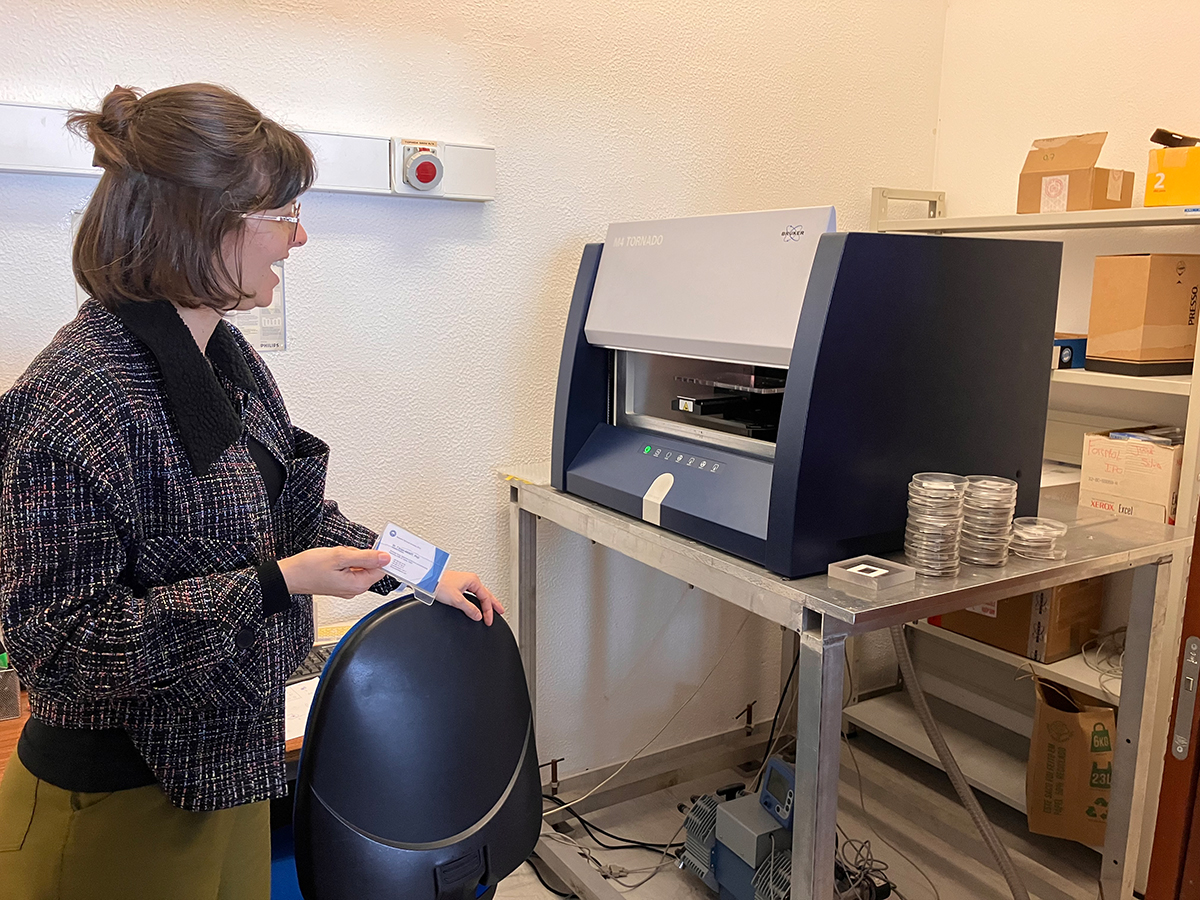
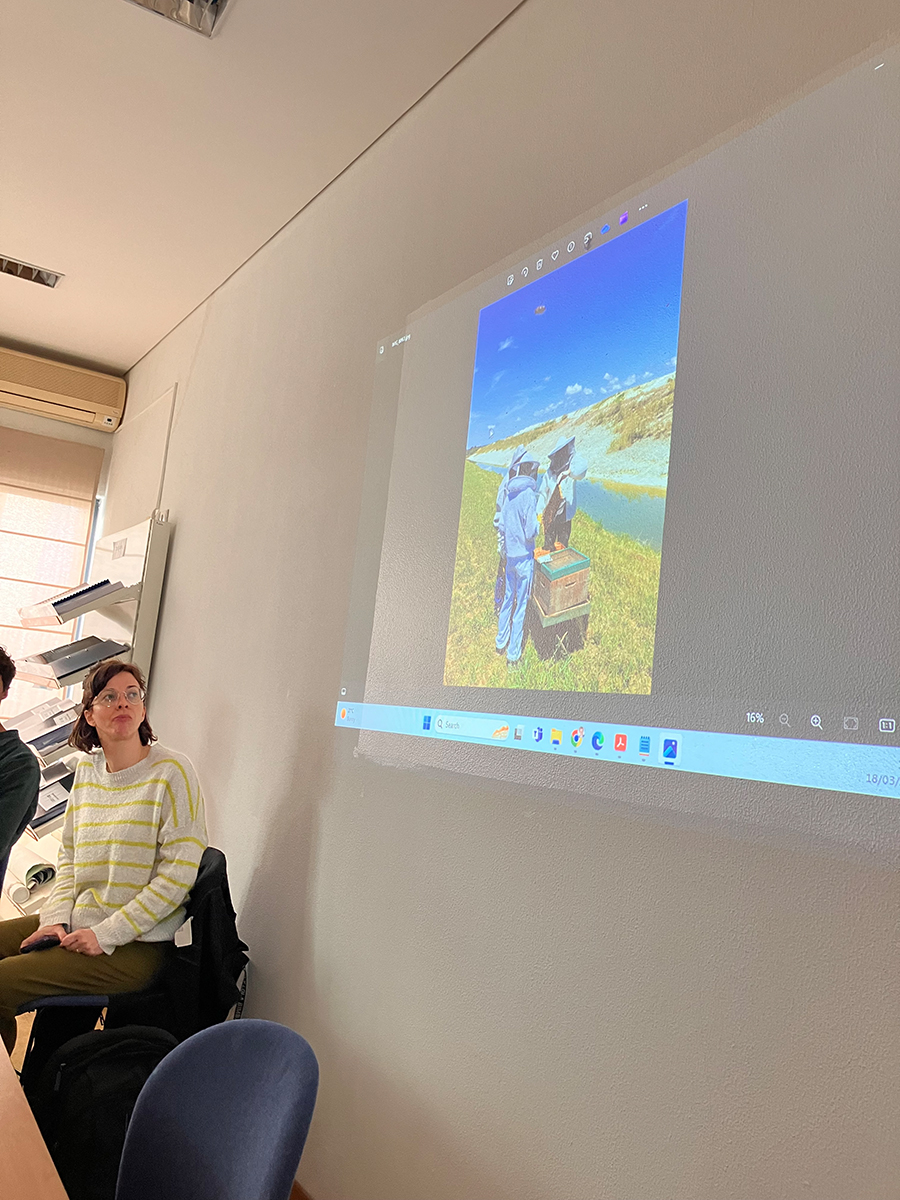
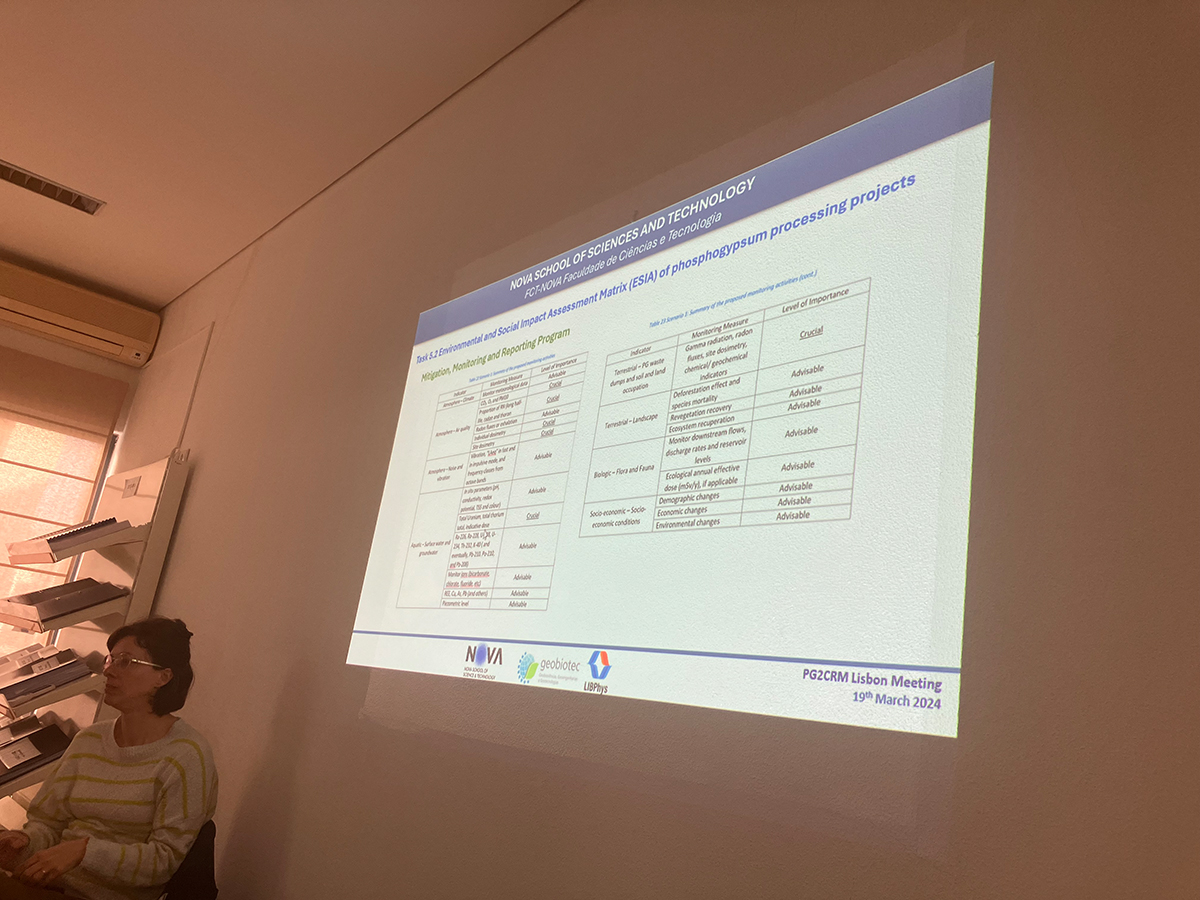
Dr. Nils Haneklaus (Freiberg University of Mining and Technology, Germany) presented the project progress of PG2CRM, while the agenda prominently featured updates on various work packages. Professor Essaid Bilal, Dr. Hajar Bellefqih (École des Mines de Saint-Étienne, France) and Dr. Katarzyna Kiegiel (Institute of Nuclear Chemistry and Technology, Poland) provided insights into the analytical results and characterization of phosphogypsum within Work Packages WP1 and WP2.
Attendees engaged deeply with newly acquired data, discussing the radionuclide content in phosphogypsum from diverse locations and techniques for extracting rare earth elements for commercial applications.
Notably, considerable attention was given to the Environmental Assessment WP. This WP includes environmental and toxicological risk assessments derived from by-products and co-products of distinct phosphogypsum processing directions, as well as life cycle analysis and impact quantification. Assistant Professor Sofia Barbosa (NOVA University Lisbon) presented the audience with the results of micro X-ray fluorescence analysis, demonstrating correlations in the detection of elements at the micrometric scale.
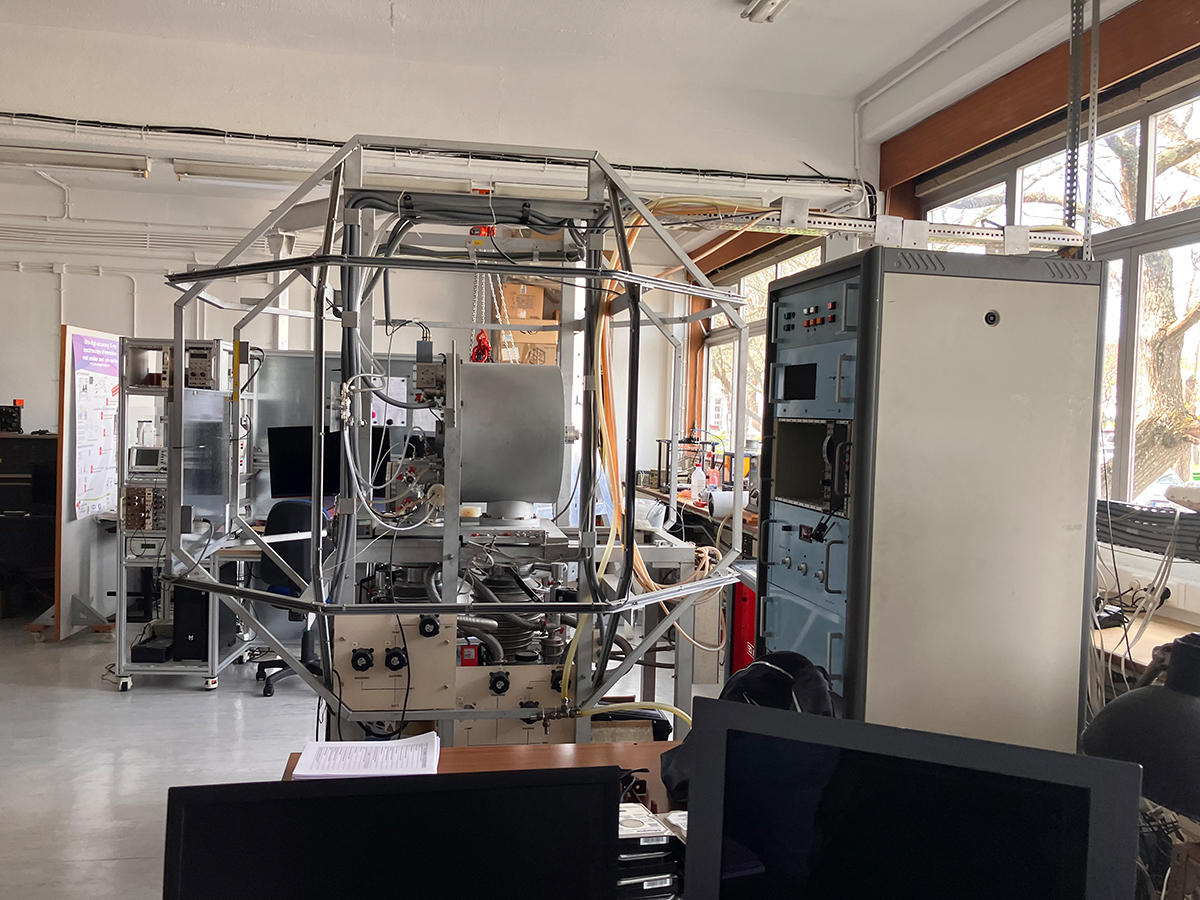
Furthermore, colleagues from the NOVA University Lisbon organized a tour to the Laboratory of Instrumentation, Biomedical Engineering, and Radiation Physics, where Sofia Pessanha showcased the equipment used for the analysis of phosphogypsum samples. Among this equipment were the micro-X-ray fluorescence spectrometer M4 TORNADO and Raman spectroscopy technique utilizing a Horiba-Jobin Yvon XploRA confocal spectrometer.
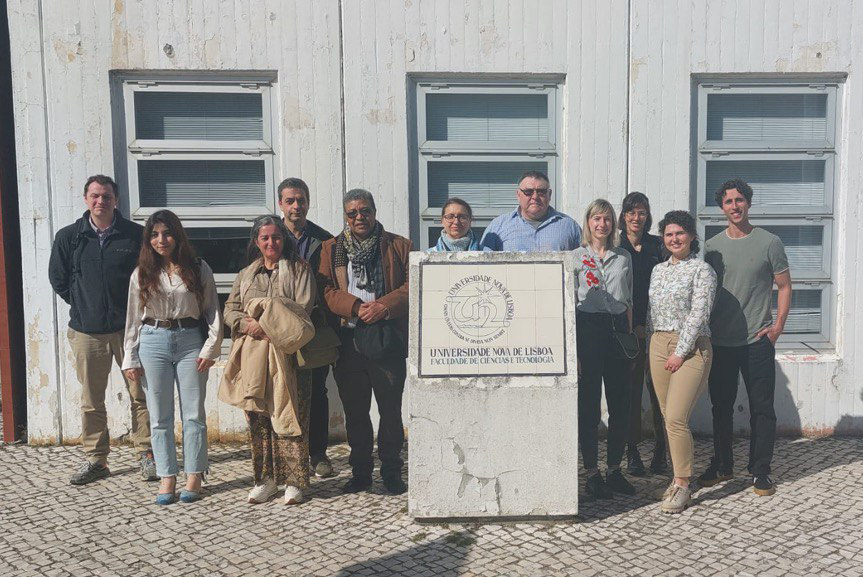
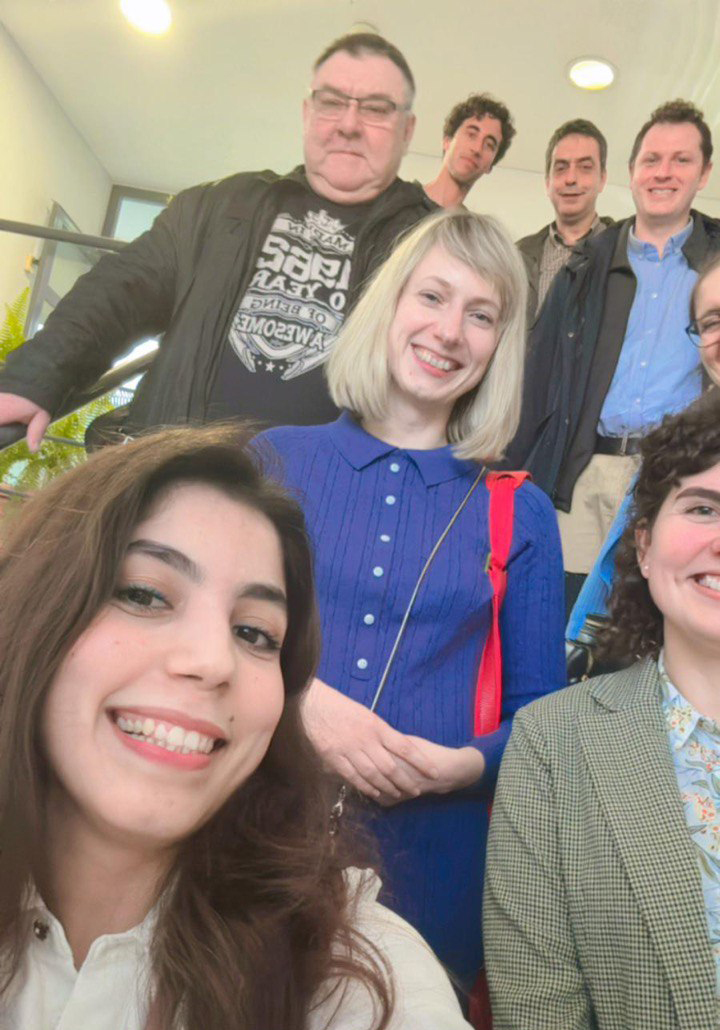
The final day of discussions centered on open dialogue regarding follow-up projects and joint publications, emphasizing the collaborative nature of the endeavor.
The PG2CRM meetings served as a platform for interdisciplinary exchange and progress in harnessing phosphogypsum's potential while ensuring environmental sustainability.
28.03.2024

